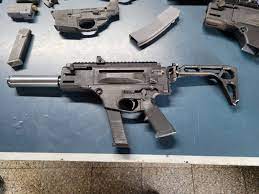
The Process of Deregistering an NFA Firearm
The national firearms act (NFA) of 1934 is a pivotal part of the legislation that is in force throughout the United States that regulates the ownership, manufacture, and transfer of specific kinds of firearms and their accessories. The law was originally enacted to address the rising violence of gangs during the Prohibition era and the NFA seeks to limit the possession of firearms that are considered as particularly dangerous to society. This is the case for machine guns, short-barreled rifles, shotguns with short-barreled barrels or silencers, as well as other firearms. Knowing the NFA is crucial for both people who love guns and those who are trying to navigate the maze of gun ownership and comply with the federal law.
One of the core features in the NFA is its requirements for all individuals and businesses to be registered to own firearms which are covered under the act. The registration process involves the submission of a detailed application with the Bureau of Alcohol, Tobacco, Firearms and Explosives (ATF), which includes fingerprinting, photos, and the payment of a once-off tax known by the name of transfer tax. The transfer tax varies based on the type of firearm used, with machines typically owing more tax. Importantly that it is the NFA restricts transfers of NFA items between individuals who are not complying with these legal requirements. Failure to comply can result in severe penalties which include fines and even imprisonment.
In addition to tax registration and registration Alongside registration and taxation, the NFA prohibits the production and sale of licensed firearms. Only dealers and manufacturers who are licensed are able to manufacture or sell NFA products, making sure that the firearms are not readily available by the public at large. Furthermore, each state has its own laws regarding the ownership of NFA items, adding another level of difficulty for firearm owners. While some states permit the possession of these firearms with certain restrictions, others impose stricter regulations or bans on them completely. Therefore, it’s essential for gun owners to educate themselves with both federal and state laws to make sure they are in conformity and prevent legal problems.